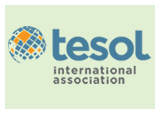TESOL's New Strategic Plan: Invitation to Share Your Thoughts and Ideas
by Luciana C. de Oliveira
 TESOL International Association has started its process to write its next strategic plan. But what exactly is a strategic plan? A strategic plan helps an organization communicate its goals to its members, guides the organization’s priorities, provides actions for the organization to achieve its goals, and contains critical elements that guide the organization’s focused work.
TESOL International Association has started its process to write its next strategic plan. But what exactly is a strategic plan? A strategic plan helps an organization communicate its goals to its members, guides the organization’s priorities, provides actions for the organization to achieve its goals, and contains critical elements that guide the organization’s focused work.
In a recent blog post, President-Elect Andy Curtis shared a definition of strategic plan, provided by the Ontario Ministry: “A strategic plan acts as a road map for carrying out the strategy and achieving long-term results.” He goes on to say that, although different organizations may have different terminology related to creating their strategic plans, the point of the exercise is the same—“to articulate clearly and concisely what the organization wants to achieve, and to state how it will go about meeting those goals and objectives.”
As TESOL members, we are able to share our thoughts and ideas about what should be part of TESOL’s next strategic plan. To help guide your thinking, you might want to look at TESOL’s current strategic plan, which runs from 2011 to 2014. The plan has three main goals:
- English language learners receive quality education through TESOL International Association’s leadership in the field.
- TESOL International Association members participate in the association to build expertise and are recognized for their involvement and professionalism.
- Individuals and organizations look to TESOL International Association to inform policy and practice.
These goals are ambitious and important for us as an organization, but one issue that we see with these goals is that they cannot really be completed, as they are permanent, ongoing goals—pledges that the professional association has made to all of its members. Therefore, a subcommittee within TESOL’s Board of Directors has been discussing the possibility that TESOL’s current goals—or some version of them—could be more effectively expressed as measurable objectives or in a format like a vision statement.
TESOL does have a mission statement—“To advance professional expertise in English language teaching and learning for speakers of other languages worldwide”—but as the association approaches its 50th anniversary in a couple of years (2016), now may be a good time for the association to think about creating a vision statement as well, perhaps based on the existing three main goals, on some new goals, or on some other vision.
If you go to TESOL’s website, you’ll find a page that lists what we currently refer to as our three main goals, together with four objectives under each of those goals, making 12 objectives total. Three of the key questions that the board subcommittee has been considering are:
- Which objectives in the current strategic plan (2011–2014) are worth keeping in the next strategic plan (2015–2018)?
- Which objectives can be considered completed?
- Which objectives can be considered not completed, but we still want to keep in the next strategic plan?
On that page, you will also see a timeline for the development of the new plan, which started in March at the TESOL 2014 convention in Portland and goes until March next year at the TESOL 2015 convention in Toronto.
The members of the Board subcommittee working on the new strategic plan are:
Andy Curtis (President-Elect)
Deena Boraie (Past President)
Rosa Aronson (Executive Director)
John Segota (Associate Executive Director)
Lillian Wong (2012–2015)
Luciana de Oliveira (2013–2016)
Aya Matsuda (2014–2017)
All of the members of the subcommittee are open to receiving your input on this process. If you have any suggestions, please send them directly to any of us on this subcommittee. We look forward to hearing from you.
_______________________________
Luciana C. de Oliveira is an associate professor of TESOL and applied linguistics at Teachers College, Columbia University, in New York, where she coordinates the MA TESOL program with K–12 certification. Luciana is a member of the TESOL Board of Directors (2013–2016). Luciana is the editor of a new book series, published by TESOL Press, focused on the Common Core State Standards and English language learners.
TESOL Blogs
Interested in writing a blog for TESOL?
Contact
Tomiko Breland with your idea or for submission details.
Check out the latest TESOL Blogs:
|
4 World Cup Writing Activities, by Elena Shvidko
 As World Cup 2014 is about to start, we, teachers, can create interesting and motivating activities to make this popular event a part of our courses. Like many people in Russia (and Europe), I enjoy watching soccer games, and in today’s blog, I will share a few World Cup–related activities that you can incorporate in your writing classes. Read More. As World Cup 2014 is about to start, we, teachers, can create interesting and motivating activities to make this popular event a part of our courses. Like many people in Russia (and Europe), I enjoy watching soccer games, and in today’s blog, I will share a few World Cup–related activities that you can incorporate in your writing classes. Read More.
|
|
Learning the Ropes: A Project-Based Speaking Activity, by Alexandra Lowe
 Group oral presentations are a staple of many ESL classes. While students get a lot of speaking and listening practice during these projects because they are working in and outside of class with partners to prepare their presentations, it dawned on me last semester that these assignments, paradoxically, do not necessarily require them to speak in order to gather the information they present. Most of the information my students have presented in the past was something they could find by browsing the Web—data about their country’s economy, current news stories, interesting facts about famous historical figures, etc. While this may be helpful for their reading skills, I wanted the students in my high-intermediate IEP speaking & listening class to actually use their speaking skills to gather the information they would need for their presentation. Read More. Group oral presentations are a staple of many ESL classes. While students get a lot of speaking and listening practice during these projects because they are working in and outside of class with partners to prepare their presentations, it dawned on me last semester that these assignments, paradoxically, do not necessarily require them to speak in order to gather the information they present. Most of the information my students have presented in the past was something they could find by browsing the Web—data about their country’s economy, current news stories, interesting facts about famous historical figures, etc. While this may be helpful for their reading skills, I wanted the students in my high-intermediate IEP speaking & listening class to actually use their speaking skills to gather the information they would need for their presentation. Read More.
|
|
Strategies for Providing a Bully-Free Environment for ELLs, by Judie Haynes
 English language learners (ELLs) are often the targets of bullying. Accented language and cultural customs that are perceived as different frequently cause ELLs to be victimized by bullies. Bullying is evident in the classroom as early as preschool, and there are potentially many long-lasting effects of bullying for the victim. Children who are bullied have low self-esteem and tend to be anxious and insecure. They are often lonely and depressed. Because of bullying, their social skills are typically deficient, making it difficult for them to make friends (Nansel et al., 2001). Read More. English language learners (ELLs) are often the targets of bullying. Accented language and cultural customs that are perceived as different frequently cause ELLs to be victimized by bullies. Bullying is evident in the classroom as early as preschool, and there are potentially many long-lasting effects of bullying for the victim. Children who are bullied have low self-esteem and tend to be anxious and insecure. They are often lonely and depressed. Because of bullying, their social skills are typically deficient, making it difficult for them to make friends (Nansel et al., 2001). Read More.
|
|
ESL Games: Fractured Fables, by Marc Anderson
 The Game: Fractured Fables is a game that provides a means to learn English without students being aware they are studying. The game’s context of putting sentences together helps make the foreign language immediately useful to students by bringing the target language to life. The Game: Fractured Fables is a game that provides a means to learn English without students being aware they are studying. The game’s context of putting sentences together helps make the foreign language immediately useful to students by bringing the target language to life.
Research Says: It is easier for EFL students to acquire language when they are without stress (Using Games in an EFL Class for Children, Y. Yong Mei and J. Yu-jig, 2000); Fractured Fables allows exactly for this kind of stress-free learning. Read More. |